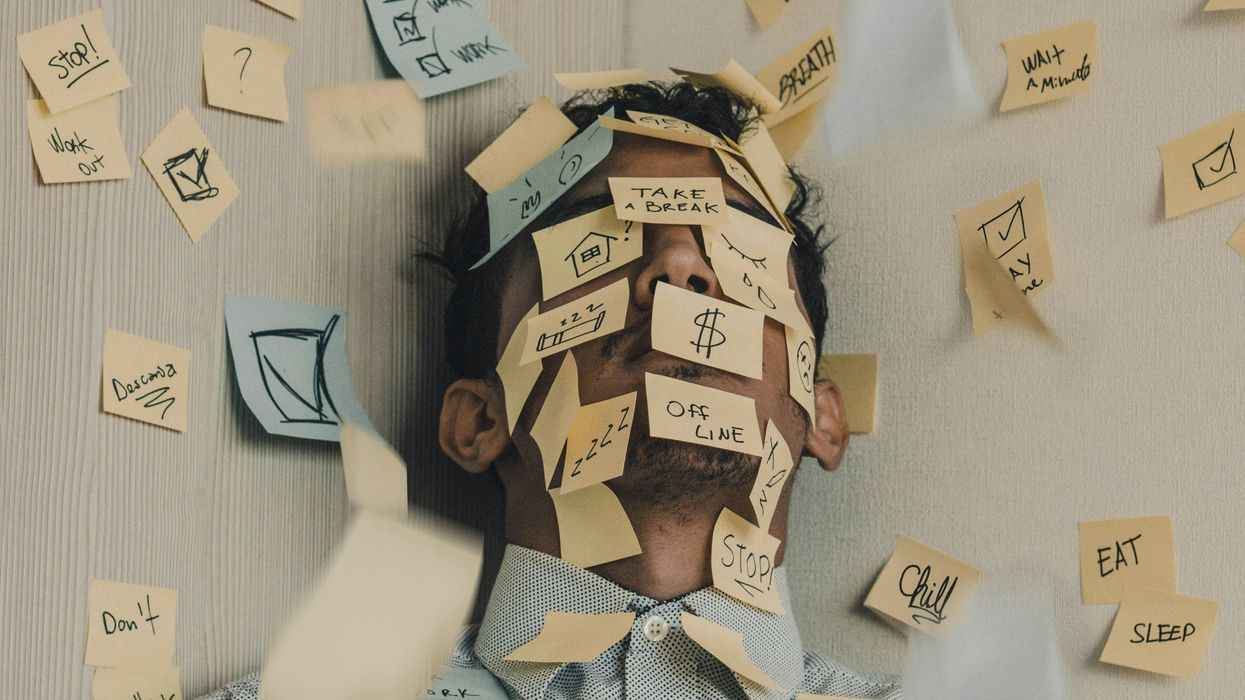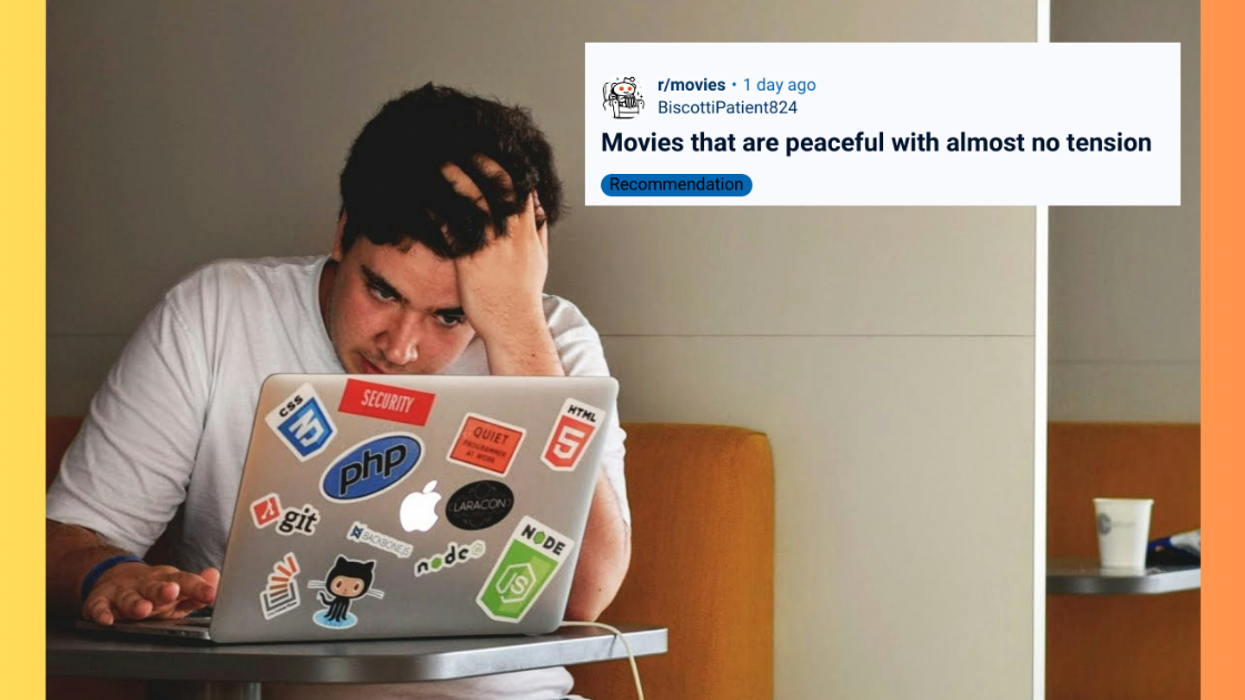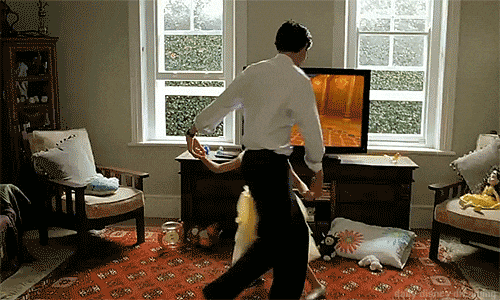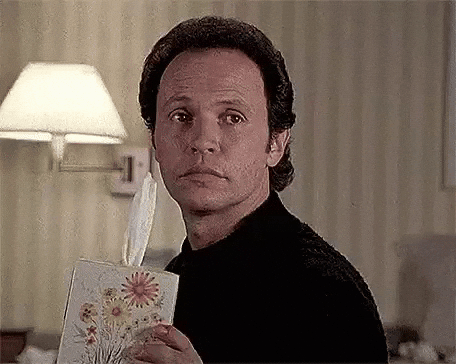Does this sound familiar?
You have a super important deadline coming up at work… but you put it off until the very last minute. You promised your girlfriend that this time, you’d plan the vacation… but surely, that can wait until tomorrow, right? Oh, and it’s about time to renew your passport… but watching “Modern Family” for the billionth time sounds so much nicer right now.
Procrastination happens to the best of us. But why do our brains work like this?

We all put tasks off, but according to the American Psychological Association, one out of five people in the United States—20% of the population—is a “chronic” procrastinator. These people prefer to wait, and as a result, end up delaying all aspects of their life: at home, work, and school, and in relationships. While non-procratinators focus on the task at hand (these people also tend to have a stronger personal identity and are less wrapped up in “social esteem,” or what others think of us), procrastinators habitually put off everything, and usually have some handy "excuse" as to why they can't right now. Which may sound a bit harsh. As Dr. Joseph Ferrari (a professor of psychology at DePaul University and a leading international researcher in the study of procrastination) makes clear, chronic procrastination often manifests itself with other personality challenges such as ADHD, passive-aggressive tendencies, and obsessive-compulsive disorder.
But you don’t have to struggle with procrastination forever. On the Reddit forum r/getdisciplined (a self-motivation forum), user @Sad_Satisfaction1550 learned this exact, very powerful lesson, writing, “for years, I thought the only way to get myself to do anything was through guilt and self-criticism. If I didn’t bully myself into working, cleaning, or exercising, nothing would happen. It was always some variable of: ‘If I don’t XYZ, I’m a failure and will feel horrible.'”
However, everything changed after a meeting with their therapist.
“She told me,” the user continues, “Instead of avoiding feeling bad, why not chase feeling good?”

Just that one simple phrase, “instead of feeling bad, why not chase feeling good?” unlocked user @Sad_Satisfaction1550’s entire world, like Neo taking the red pill and learning the truth about the Matrix. Suddenly, nothing was the same anymore. They were able to reframe things and situations that would have thwarted them previously. “Instead of saying, ‘I have to work out or I’ll feel gross,’ I now say, ‘moving my body makes me feel energized and strong,’” they write. “[Or,] instead of ‘If I don’t finish this project. I’ll hate myself,’ it [becomes], ‘Working on this aligns with the life I want to build.’”
Could it really be that easy? The original poster acknowledges that this might come off silly, writing, “It sounds stupidly simple, but reframing my thoughts this way has made everything so much easier to start. No more guilt-driven productivity spirals. Just me, doing things because they make my life better, not because I’m trying to escape self-hatred.”
If you’re still having trouble wrapping your head around this idea, don’t worry. Here are a few extra tips and tricks from user @Sad_Satisfaction1550 on Reddit, along with some related book recommendations, courtesy of their therapist.

How to opt out of the self-criticism loop
- Your brain is wired for threat detection, not happiness. “Evolutionarily, we’re built to avoid danger, which is why negative self-talk can feel more ‘natural,’” they write. “But happiness? Fulfillment? You have to consciously train yourself to prioritize them.” Realizing and accepting this fact can be an essential step towards breaking your habitual procrastination. According to the Center for Courageous Living, our amygdala (the part of the brain known as the “threat detector”) is constantly scanning our surroundings, and asking "Is it safe?" The amygdala is one of the most ancient and primitive parts of the brain, and stays hypervigilant in case we need to be alerted of danger. But while this basic survival mechanism was certainly helpful in prehistoric times, in today’s world, an overactive amygdala can “hijack” our brain and cause us to spring into action before “we’re even aware of what’s going on.”
- Dopamine isn’t just about pleasure—it’s about motivation. While you probably associate dopamine with happiness (it is called “the happy hormone," after all), the little neurotransmitter is a lot more complicated than that. Whenever you do something enjoyable or beneficial, your brain releases dopamine, essentially sending a message to the body: “Whoa, that was awesome. Let’s bookmark it and do it again.” By regulating motor control and executive function, dopamine becomes a natural motivator, and gets you off your butt and moving in the right direction. “When your brain sees a task as a way to escape pain, it releases less dopamine,” writes user @Sad_Satisfaction1550. “But when you associate it with something rewarding, dopamine spikes, making it easier to act. That’s why shifting from ‘avoid bad’ to ‘chase good’ works so well."
- Your thoughts are not orders. Just because you think something, doesn’t make it true. Like, you probably thought the Dallas Mavericks would never trade their star player, Luka Dončić. And we all know how that ended. Similarly, being cruel to ourselves is almost never a reflection of reality. “Just because your brain tells you ‘I suck,’ doesn’t make it true,” the Reddit user reminds. “I started treating negative self-talk like spam emails—acknowledge, then delete."

Additional reading
Still not satisfied? It may be time to hit the books. “My therapist also threw a bunch of book recs at me, and honestly, reading these changed everything,” says @Sad_Satisfaction1550 on Reddit.
- “The Expectation Effect: How Your Mindset Can Change Your World” by David Robinson. — “This book will make you question everything you think you know about your brain. It’s about how our expectations literally shape our reality—and how believing something is hard makes it harder and how shifting your mindset can rewire your experiences. Insanely good read.”
- “Stolen Focus: Why You Can’t Pay Attention—and How to Think Deeply Again” by Johann Hari. — “If you’ve ever felt like your brain is turning to mush from scrolling, this book explains why. It dives deep into how modern life is rewiring our ability to focus and how to reclaim our attention. This book actually got me to change my habits.”
- “The Mindful Athlete: Secrets to Pure Performance” by George Mumford. — “Ever wonder how elite athletes stay mentally sharp? This book breaks down how mindfulness can help you perform better under pressure, whether you’re playing sports or just trying to get through Monday. The practical techniques in here are gold.”
- “No Hard Feelings: The Secret Power of Embracing Emotions at Work” by Liz Fosslien and Mollie West Duffy. — “If you’ve ever been told to “just be rational,” this book will blow your mind. It’s all about how emotions aren’t the enemy of logic but actually fuel better decision-making, productivity, and creativity. Super fun, easy read.”
- “Burnout: The Secret to Unlocking the Stress Cycle” by Emily Nagosaki and Amelia Nagosaki. — “This book helped me understand why stress isn’t just about work but about how we complete the ‘stress cycle.’ It’s packed with actionable tips on how to actually finish stress so it doesn’t eat you alive. Life-changing stuff.”
For this Reddit user, therapy became more than just a safe space to talk about their feelings. It gave them a tool for getting out of the “self-criticism mode”—and into life. So, what tasks are you putting off? And could there be a way to think about them differently?












 A daunting mess was no match for one woman. Jonna Roslund, used with permission.
A daunting mess was no match for one woman. Jonna Roslund, used with permission.  What looks like just a tidy room was actually a giant victoryJonna Roslund, used with permission.
What looks like just a tidy room was actually a giant victoryJonna Roslund, used with permission.  Jonna Roslund, used with permission.
Jonna Roslund, used with permission. 






 man in white dress shirt sitting beside woman in black long sleeve shirt Photo by
man in white dress shirt sitting beside woman in black long sleeve shirt Photo by  person near clear glass window pane and window blinds low-light photography Photo by
person near clear glass window pane and window blinds low-light photography Photo by 
 Happy Full House GIF
Happy Full House GIF  The Fresh Prince Of Bel Air Reaction GIF
The Fresh Prince Of Bel Air Reaction GIF 
 TikTok | @brinleemiles
TikTok | @brinleemiles
 Fathers Day Dance GIF
Fathers Day Dance GIF  Billy Crystal Crying GIF by MOODMAN
Billy Crystal Crying GIF by MOODMAN